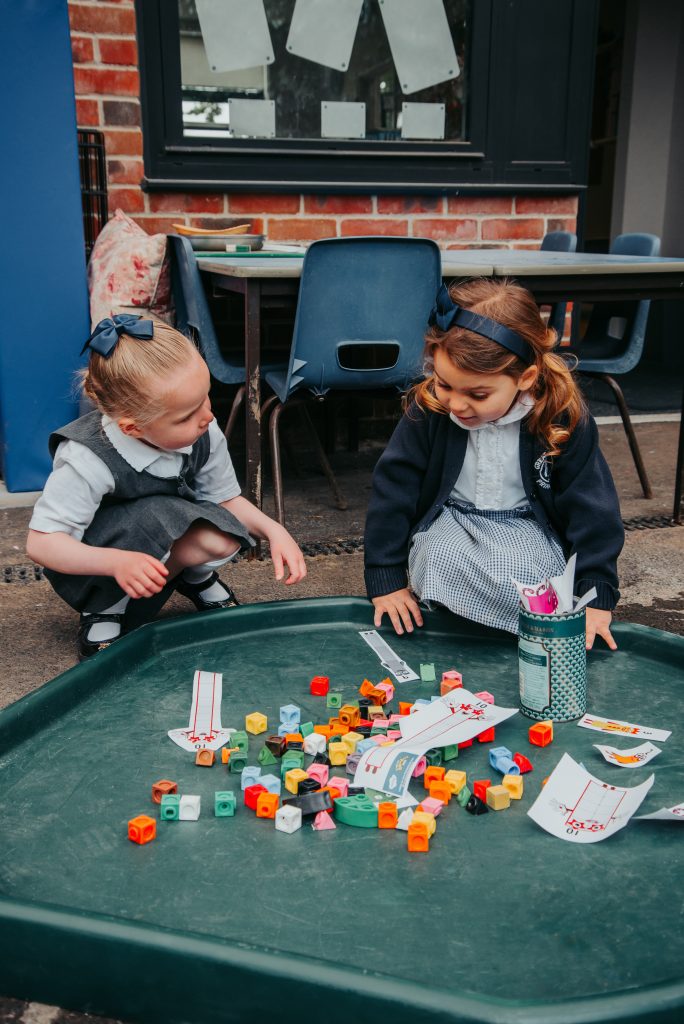Supporting Your Child with their Learning
Parental involvement in a child’s education is one of the most significant factors in their academic success. When schools and families work together, children are more likely to achieve well academically, develop better social skills, and have a more positive attitude toward learning. Research consistently highlights the impact of parental support with learning and by working in partnership, we can create a supportive learning environment which sets them up for long-term success.
Home Learning
Reception
In Reception, children are expected to read at home as often as possible – once a day for a short time is more beneficial than less frequent, longer sessions less. They will bring home school reading books which are closely matched to the current phonics teaching within the class. It is important that at this stage of reading, children have repeated opportunities to say and blend the phonemes (sounds) they see at school and at home.
The Phonics Scheme we use in school is Phonics Bug by Pearson. Phonics can seem a little strange to parents to begin with so if you would like to brush up on how to correctly pronounce the phonemes your child, we recommend having a look at the videos on YouTube called ‘Mr Thorne Does Phonics’.
We also encourage you to Parents can support your children with maths at home by incorporating numbers and problem-solving into everyday activities in a fun and engaging way. Simple tasks like counting toys, setting the table with the correct number of plates, or spotting numbers on doors and signs help children develop number recognition and counting skills. Singing number songs, playing board games, and using objects like blocks or buttons for simple addition and subtraction make learning hands-on and enjoyable.
Encouraging children to compare sizes, sort objects by colour or shape, and talk about patterns strengthens their understanding of mathematical concepts. Most importantly, creating a positive and encouraging environment where children feel confident to explore and ask questions about numbers builds a strong foundation for their future learning.
Home Learning Expectations:
- Read every day for a short time
- Encourage reading a variety of texts (comics, recipes, non-fiction)
- Regularly practice reading and spelling the phonics tricky words sent home
- Sing counting songs and play games involving numbers to 10
Key Stage One (Year 1 and Year 2)
Parents can support their Key Stage 1 (KS1) children with reading at home by making it a regular, enjoyable part of their daily routine. Reading together every day, whether it’s a bedtime story or taking turns reading aloud, helps children develop fluency and confidence. Asking questions about the story, such as predicting what might happen next or discussing characters’ feelings, improves comprehension skills. Encouraging children to spot familiar words, sound out new ones, and use phonics strategies strengthens their decoding abilities.
Providing a variety of reading materials, from storybooks to comics and non-fiction, keeps them engaged and interested. Most importantly, praising their efforts, celebrating progress, and showing a love for reading themselves helps children develop a lifelong positive attitude towards books.
Parents can help their children with maths at home by making learning practical, fun, and part of everyday life. Encouraging children to count objects, recognize numbers on clocks and signs, and use money during shopping trips helps them see how maths is used in real life. Playing games that involve number recognition, simple addition and subtraction, or times tables strengthens key skills in an engaging way.
Cooking together provides a great opportunity to explore measurements, weights, and fractions. Asking children to explain their thinking when solving a problem builds their reasoning skills and confidence. Most importantly, keeping a positive attitude towards maths and praising their efforts helps children develop a love for learning and a belief in their own abilities.
Home Learning Expectations:
- Regular reading of phonics reading book (at least three times a week)
- Regularly practice reading and spelling the tricky words (Y1) and Common Exception Words (Y2) sent home
- Visit Bug Club at least once each week
- In Year 2, practice x2, x5 and x10 on Times Tables Rockstars
Lower Key Stage 2 (Year 3 and Year 4)
Parents can support their children with reading at home by encouraging regular and varied reading experiences. Providing access to a range of books, including fiction, non-fiction, poetry, and comics, helps children develop a love for reading and broaden their vocabulary. Discussing books together by asking open-ended questions about characters, themes, and predictions enhances comprehension and critical thinking.
Encouraging children to read aloud with expression builds fluency and confidence, while also helping them to self-correct mistakes. Introducing them to more challenging texts and discussing unfamiliar words expands their understanding. Most importantly, showing enthusiasm for reading, setting a good example by reading themselves, and celebrating their progress fosters a positive and lifelong reading habit.
Parents can help their children with maths at home by making it a practical and engaging part of daily life. Encouraging them to practise times tables through games, songs, and quick challenges helps build fluency and confidence. Involving children in real-life maths, such as measuring ingredients while cooking, telling the time, or handling money during shopping, reinforces key skills in a meaningful way.
Playing board games, puzzles, and online maths games can make learning fun while improving problem-solving abilities. Asking children to explain their reasoning when solving a problem helps deepen their understanding and develop logical thinking. Most importantly, maintaining a positive attitude towards maths and celebrating their progress encourages a growth mind set and a love for learning.
Home Learning Expectations:
- Read to an adult at least three times each week
- Visit Bug Club at least once each week
- Practice your spellings at least three times a week
- Spend 30 minutes each week on Century
- Practice fluent recall of all multiplication tables to x12 TT Rockstars
Upper Key Stage 2 (Year 5 and Year 6)
Parents can support their Year 5 and Year 6 children with reading at home by encouraging regular, independent reading while also engaging in discussions about books. Providing a variety of reading materials, including novels, newspapers, magazines, and non-fiction, helps expand vocabulary and comprehension skills. Asking open-ended questions about a book’s themes, characters, and plot encourages deeper thinking and analysis.
Encouraging children to read aloud with expression helps improve fluency and confidence, while also reinforcing their understanding of punctuation and tone. Supporting them in exploring more challenging texts and discussing unfamiliar words enhances their language skills. Parents who show enthusiasm for reading, recommend books, and share their own reading experiences helps children develop a lifelong love for literature.
Parents can support their Year 5 and Year 6 children with maths at home by encouraging regular practice and applying maths to real-life situations. Helping them consolidate key skills, such as fractions, decimals, percentages, and times tables, through quick challenges or online games builds fluency and confidence. Encouraging problem-solving in everyday activities, such as budgeting pocket money, measuring for recipes, or calculating time differences, makes maths more relevant and engaging.
Discussing different strategies for solving problems and asking children to explain their reasoning helps deepen their understanding and develop logical thinking. Providing opportunities for mental maths practice, puzzle-solving, and strategy-based games strengthens their ability to think critically. Most importantly, fostering a positive attitude, praising effort, and showing how maths is useful in daily life can help children feel more confident and motivated in their learning.
Home Learning Expectations:
- Read at least three times each week (twice to an adult)
- Visit Bug Club at least once each week
- Practice your spellings at least three times a week
- Spend one hour each week on Century (split between Maths and English)
- Practice fluent recall of all multiplication tables to x12 TT Rockstars



